Bali is more than just beautiful beaches and lively nightlife, it's also a haven for eco-tourism and a great place to practice sustainable travel. More and more travelers are looking for ways to enjoy the island while leaving a positive impact on its environment and communities. From participating in conservation programs to exploring natural landscapes responsibly, Bali offers countless ways to travel sustainably while having unforgettable experiences.
Why Choose Eco-Tourism in Bali?
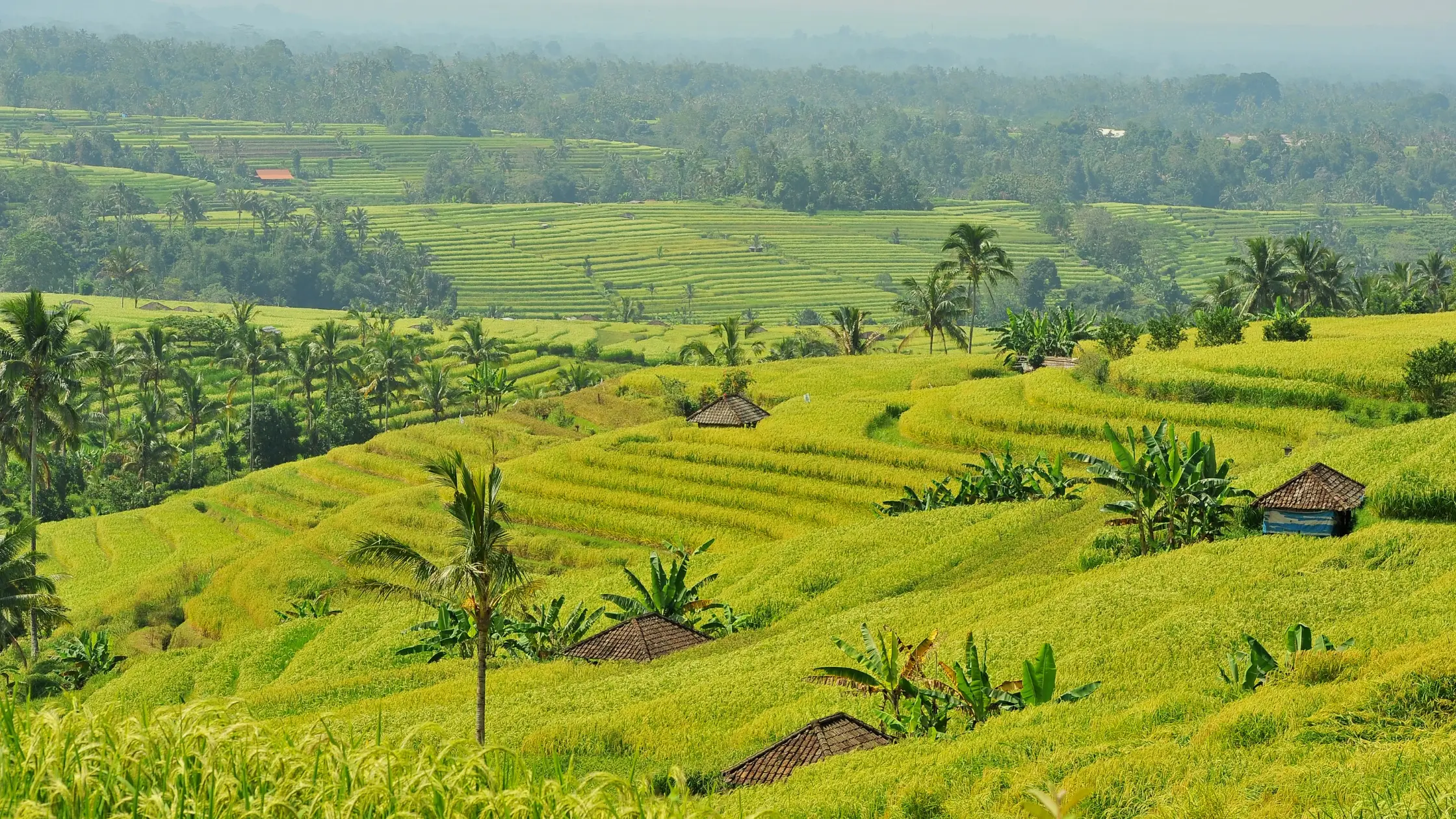
Before you plan your itinerary, it’s worth asking: why is eco-tourism Bali so important? As Bali grows more popular, mass tourism has taken its toll on beaches, reefs, and local communities. Practicing eco-friendly travel allows you to enjoy the island’s beauty while preserving its culture and nature. Ecotourism is a form of travel that focuses on environmentally sustainable tourism, supporting conservation efforts, empowering local communities, and providing educational opportunities. Sustainable tourism not only reduces your footprint but also supports local livelihoods, ensuring future generations can experience Bali at its best.
Beyond its environmental benefits, eco-tourism also gives travelers a much richer experience of the island. Instead of just visiting the usual crowded beaches and resorts, you get to slow down, connect with nature, and discover parts of Bali that many visitors never see. Whether it’s paddling through a peaceful mangrove forest, learning about traditional farming practices, or spotting wildlife in its natural habitat, you’ll leave feeling more connected to the land and its people. These eco-tourism initiatives in Bali contribute to environmental sustainability and help support the island’s climate resilience. These slower, more mindful experiences are often what travelers remember most.
Eco-tourism in Bali also plays a role in raising awareness about the challenges the island faces. When you choose activities that emphasize sustainability, guides and locals often share insights into issues like coral reef damage, plastic pollution, and habitat loss. This not only makes your trip more meaningful, but it also inspires you to make more responsible travel choices in the future, whether in Bali or elsewhere in the world. Eco-tourism supports global climate goals by helping reduce greenhouse gas emissions and promoting conservation. Every small action adds up, and as a visitor, you have the power to be part of the solution.
By choosing eco-tourism in Bali, you are also contributing to broader sustainable development objectives, such as aligning with the UN Sustainable Development Goals and supporting biodiversity conservation.
Your travel choices can have a positive impact on both the environment and local communities. By participating in eco-tourism activities, you help achieve measurable sustainability milestones and support Bali’s journey toward a more sustainable future.
Introduction to Eco-Tourism in Bali
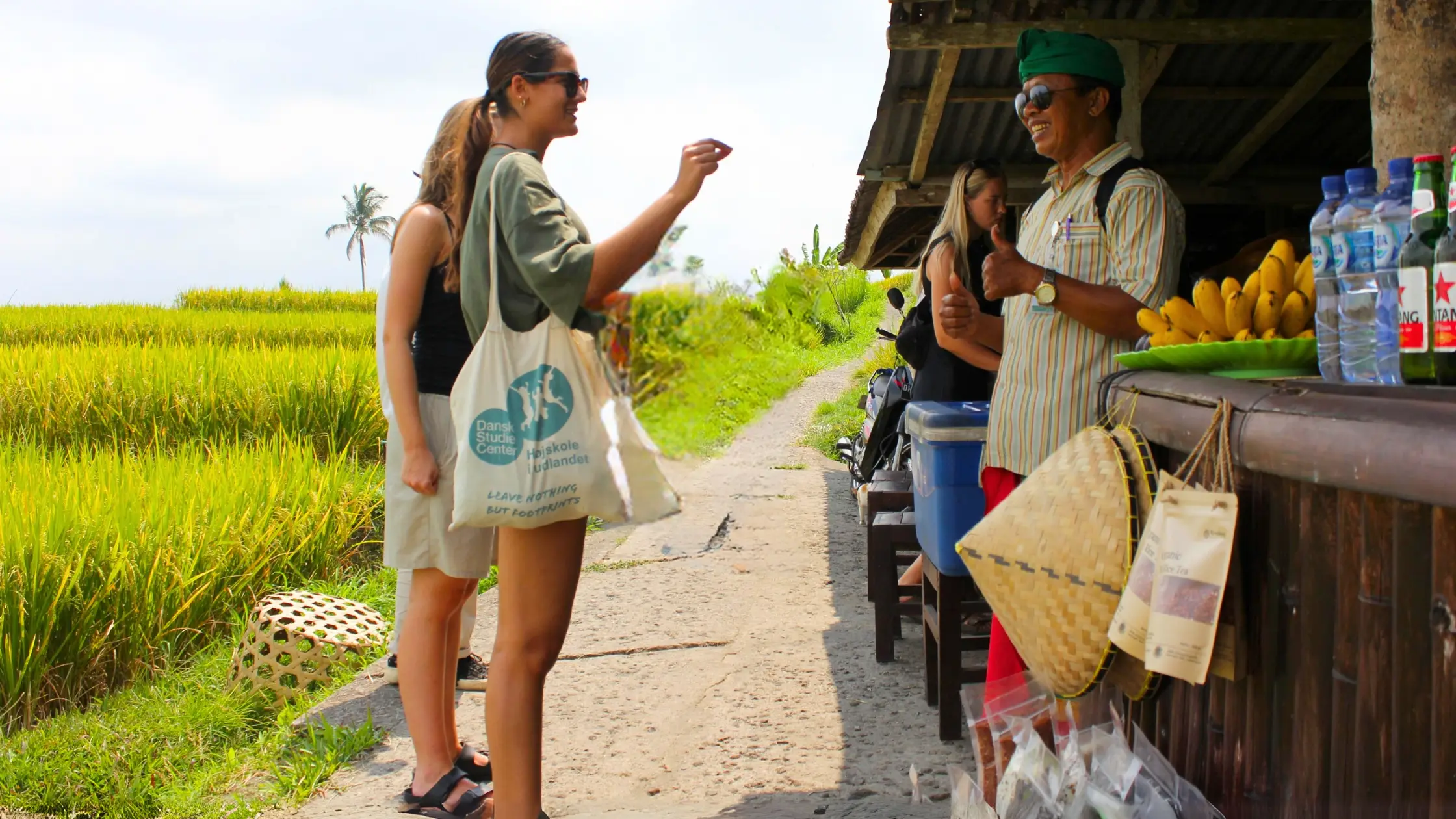
Eco-tourism in Bali is more than just a travel trend, it’s a movement that’s transforming the way visitors experience the island. As a leader in sustainable tourism, Bali has been recognized by the Global Sustainable Tourism Council for its commitment to preserving the natural environment and supporting local communities. The island’s eco-tourism sector is built on a foundation of conservation, responsible practices, and community engagement, ensuring that tourism contributes positively to both people and the planet.
By choosing eco-friendly travel options, visitors play a direct role in reducing the environmental impact of tourism, from lowering greenhouse gas emissions to supporting initiatives that protect Bali’s unique ecosystems. Sustainable travel in Bali means exploring lush rice terraces, vibrant coral reefs, and sacred forests while respecting the delicate balance of nature. It also means supporting local businesses and artisans, which drives economic growth and helps communities thrive.
Whether you’re passionate about conservation, eager to learn about Balinese culture, or simply want to enjoy the island’s natural beauty in a responsible way, eco-tourism offers a unique opportunity to make your trip meaningful. Every action, from choosing green-certified accommodations to participating in conservation projects, helps preserve Bali’s environment and cultural heritage for future generations. By adopting sustainable travel practices, you become part of a global effort to create a more sustainable future for tourism and the world.
The Role of Local Communities in Sustainable Tourism
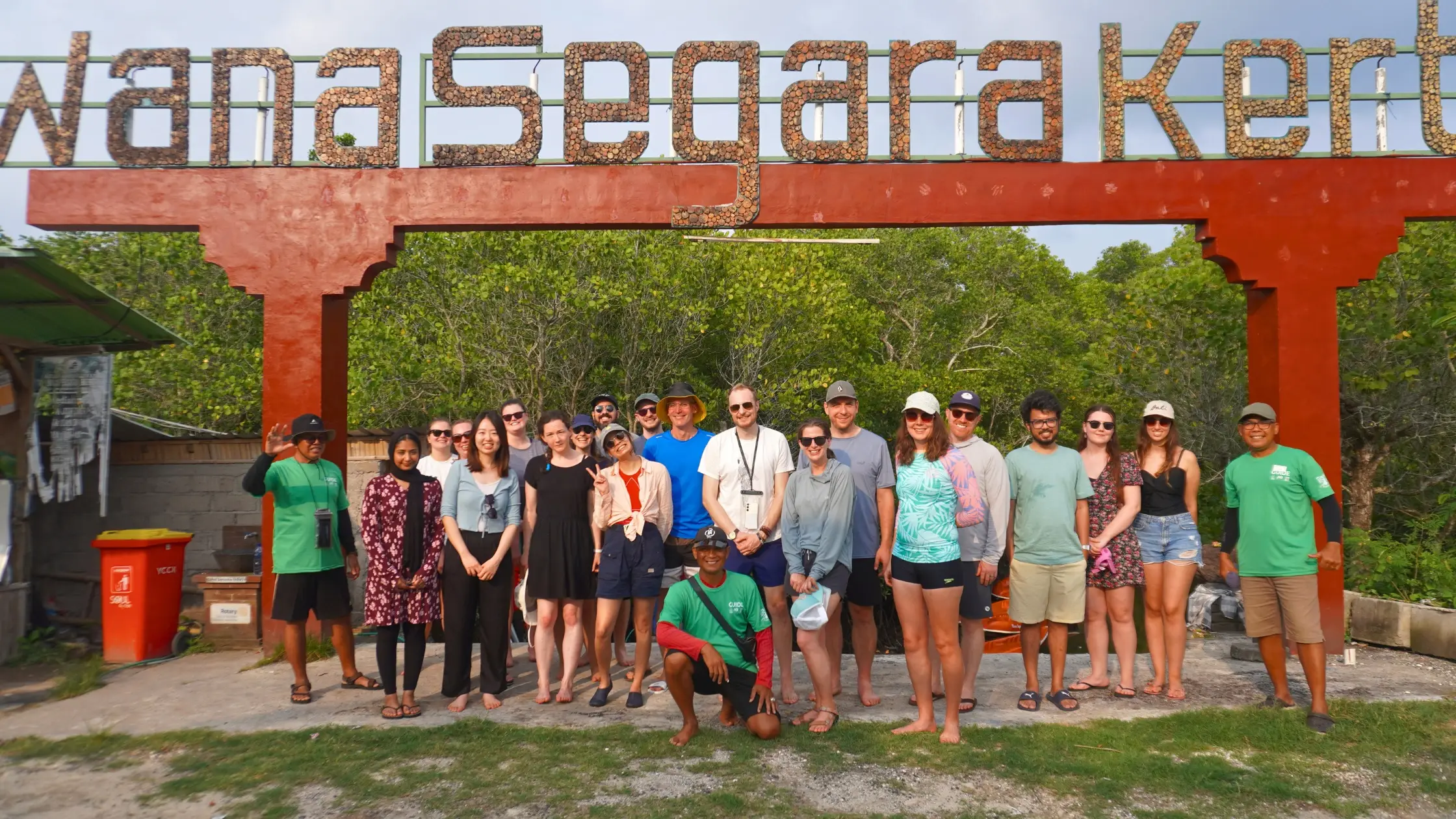
One of the unique aspects of sustainable travel in Bali is how deeply it connects you to the island’s people. Many eco-initiatives are run by local families, cooperatives, and youth groups who depend on tourism to fund conservation and education programs. These projects directly support the livelihood of local residents, ensuring that traditional ways of life are maintained alongside environmental efforts. Whether you’re joining a beach cleanup, canoeing through the mangroves, or visiting an organic farm, you’re directly contributing to their efforts to keep Bali green and vibrant.
When you choose eco-friendly tours operated by locals, you’re helping to create jobs and opportunities that keep traditional knowledge alive. Many families who have lived in the same area for generations act as stewards of the land, passing on wisdom about farming, fishing, and conservation. By supporting them, you’re not only boosting the local economy but also helping to enhance the reputation and recognition of local tourism businesses that adopt sustainable practices. This also helps to preserve Bali’s cultural heritage, which is just as important as protecting its beaches and forests.
You’ll also find that the connection you build with local communities often makes your experience much more personal and rewarding. Instead of feeling like just another tourist, you become a guest in their home. Supporting local business efforts in eco-tourism is key to fostering these authentic relationships. Many travelers come away with not just photos and souvenirs but real friendships and a deeper respect for the people who work hard to protect the island. This kind of authentic interaction is what truly sets sustainable tourism apart from mass-market travel.
The Cultural Significance of Eco-Tourism in Bali

Image by yacobchuk from Getty Images
Eco-tourism in Bali is deeply intertwined with the island’s rich cultural heritage, offering travelers a chance to experience authentic traditions while supporting the well-being of local communities. Bali’s vibrant culture reflected in its temples, festivals, and artistic expressions is at the heart of the eco-tourism experience. By engaging with local people and participating in community-based tourism, visitors help preserve time-honored customs and support the economic development of rural villages.
Many eco-tourism initiatives in Bali are led by the community, ensuring that conservation efforts are rooted in local knowledge and respect for the land. These projects not only protect natural areas, biodiversity, and wildlife, but also foster a sense of pride and stewardship among residents. When you join a village tour, attend a traditional ceremony, or support local artisans, you’re contributing to the preservation of Bali’s cultural landscape and helping to sustain the livelihoods of indigenous people.
Eco-tourism also encourages meaningful cultural exchange, allowing travelers to gain a deeper appreciation for Balinese values and ways of life. This mutual understanding strengthens the bond between visitors and hosts, creating a tourism model that benefits both the environment and the community. By choosing eco-friendly experiences, you help protect Bali’s natural and cultural treasures, ensuring they remain vibrant for generations to come
How to Travel More Sustainably in Bali
Image bt Alena Shekhovtsova from corelens
Aside from choosing eco-friendly activities, there are many small ways you can practice sustainable travel Bali every day. Walk or cycle whenever possible instead of taking a car. Reducing fuel consumption through these choices is an important part of sustainable travel. Stay at accommodations with green certifications. Shop from artisans and farmers instead of mass-produced chains. And always respect local customs, nature, and wildlife.
Even simple habits like bringing your own reusable water bottle and tote bag, saying no to single-use plastics, and properly disposing of trash can make a big difference. Consider offsetting your carbon footprint when you fly, and be mindful of water and energy use in your hotel. By being intentional with your choices, you help set a positive example for others and show respect for the island’s delicate environment. These little steps help ensure that your visit contributes to preserving Bali’s beauty for future generations, proving that sustainable travel is not just about big actions, but also about everyday mindfulness. For the best results, follow expert guidance and recommendations to make more sustainable choices during your trip.
If you’re planning a trip and wondering what Bali nature tours or eco-friendly activities to add to your itinerary, here are some of the best options that truly make a difference plus how you can join them.
Join a Beach Cleanup and Protect Bali's Shores
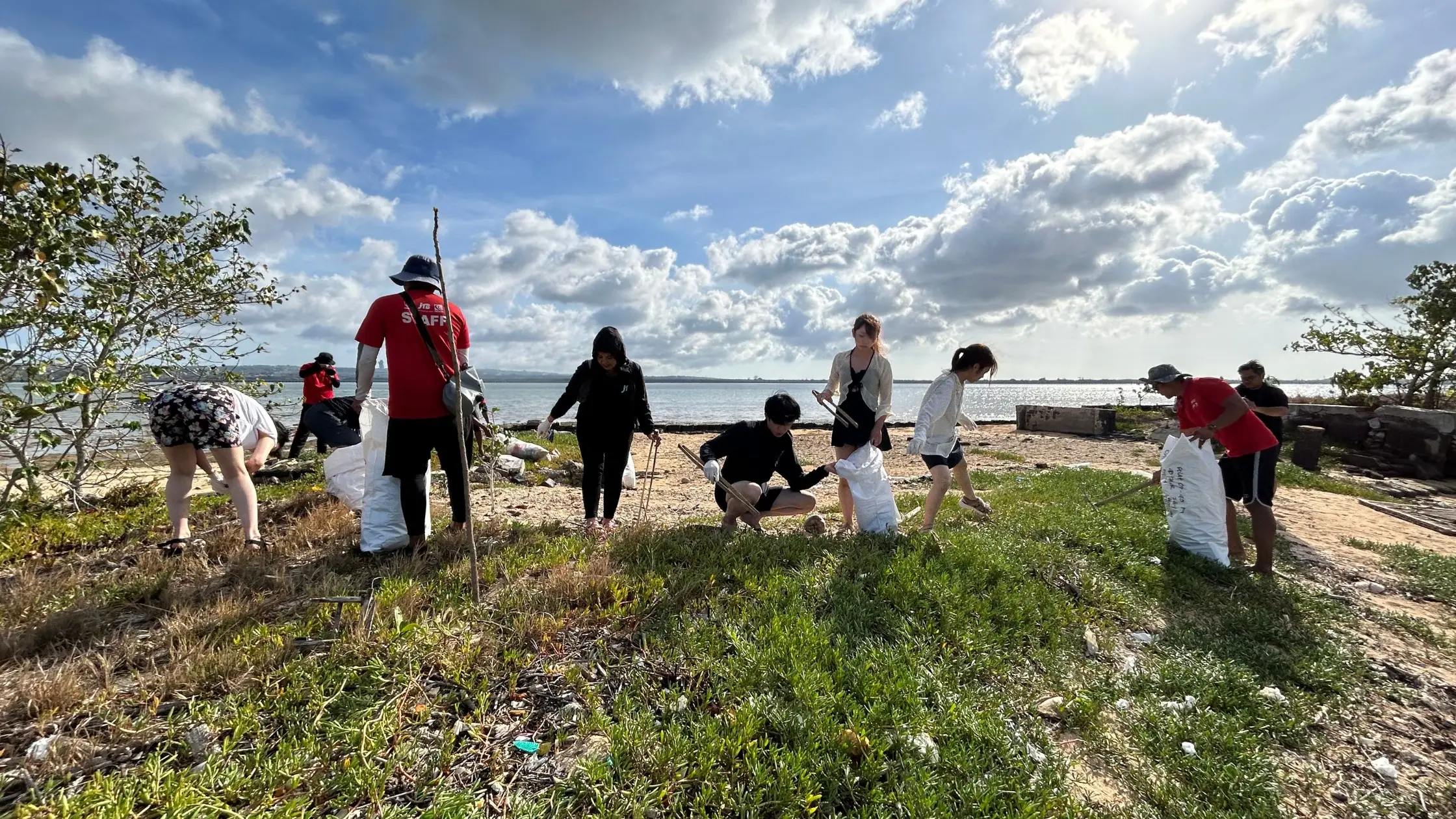
One of the simplest yet most impactful ways to contribute to eco-tourism Bali promotes is by joining a beach cleanup. Bali’s iconic beaches can unfortunately accumulate litter, especially after storms or during busy tourist seasons. Many local organizations and environmentally conscious hotels arrange regular cleanups that welcome volunteers of all ages.
It’s also a great family-friendly activity, as children can learn about ocean health and the consequences of pollution in a hands-on way. Cleanups usually take just an hour or two, but the visible impact and sense of accomplishment stay with you. Some groups even sort the trash collected for recycling, showing how even small steps help create a cleaner, greener Bali. Healthy beaches provide essential ecosystem services, such as supporting diverse habitats for marine life and protecting coastal biodiversity.
By joining a beach cleanup, you also get to meet like-minded locals and travelers who share your passion for preserving nature. It’s a simple way to bond over a shared purpose while enjoying the beautiful outdoors. Many cleanups end with a group photo or a short talk from organizers about Bali’s waste challenges and solutions, which can inspire you to make small lifestyle changes even after your trip. Beach cleanups also highlight the reality of plastic pollution in paradise, a wake-up call that helps you become a more responsible traveler.
Support Sustainable Living Through Organic Farm and Plantation Experiences
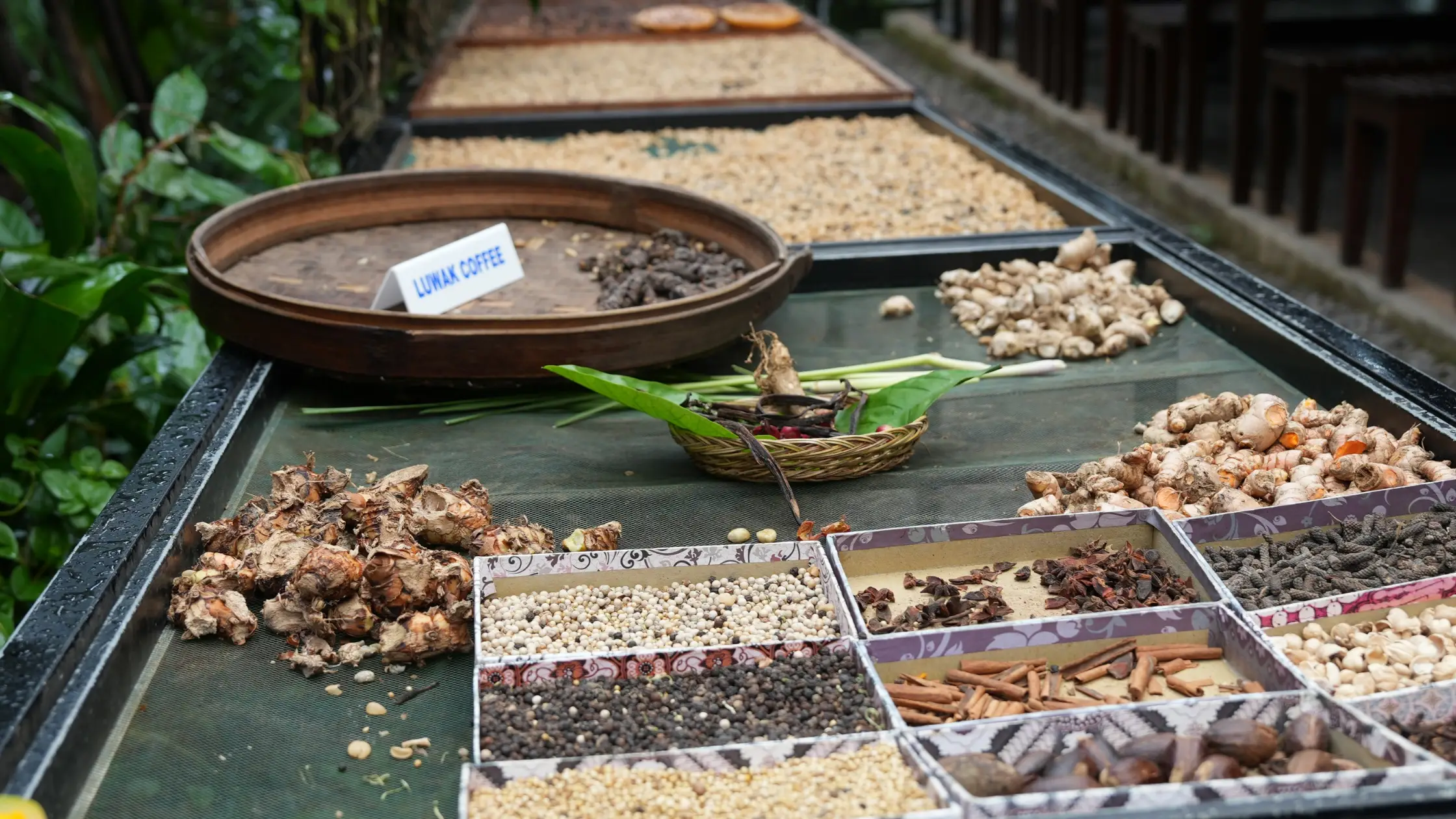
Bali is home to a growing number of organic farms and sustainable plantations that open their doors to visitors. These are perfect for travelers interested in sustainable travel in Bali, as they showcase how traditional farming practices blend with modern eco-conscious techniques.
Many farms also sell fresh produce, organic coffee, and handmade goods on site, giving you the chance to directly support local farmers. Walking through lush gardens, tasting fresh fruit, and learning about composting and permaculture is both educational and rewarding. You can even participate in seasonal planting or harvesting activities, making it a memorable part of your Bali nature tour experience.
Many of these organic farms also double as learning centers, where kids and adults alike can join workshops on composting, coffee roasting, or natural pest control. This adds a hands-on, educational element to your visit that goes beyond just sightseeing. You can even enjoy a freshly prepared meal made entirely from ingredients grown on the farm, giving you a literal taste of Bali's fertile land and sustainable agriculture practices. It's a meaningful way to connect with the local food culture and gain a deeper appreciation of traditional farming wisdom.
Support Wildlife Conservation Centers and Ethical Sanctuaries
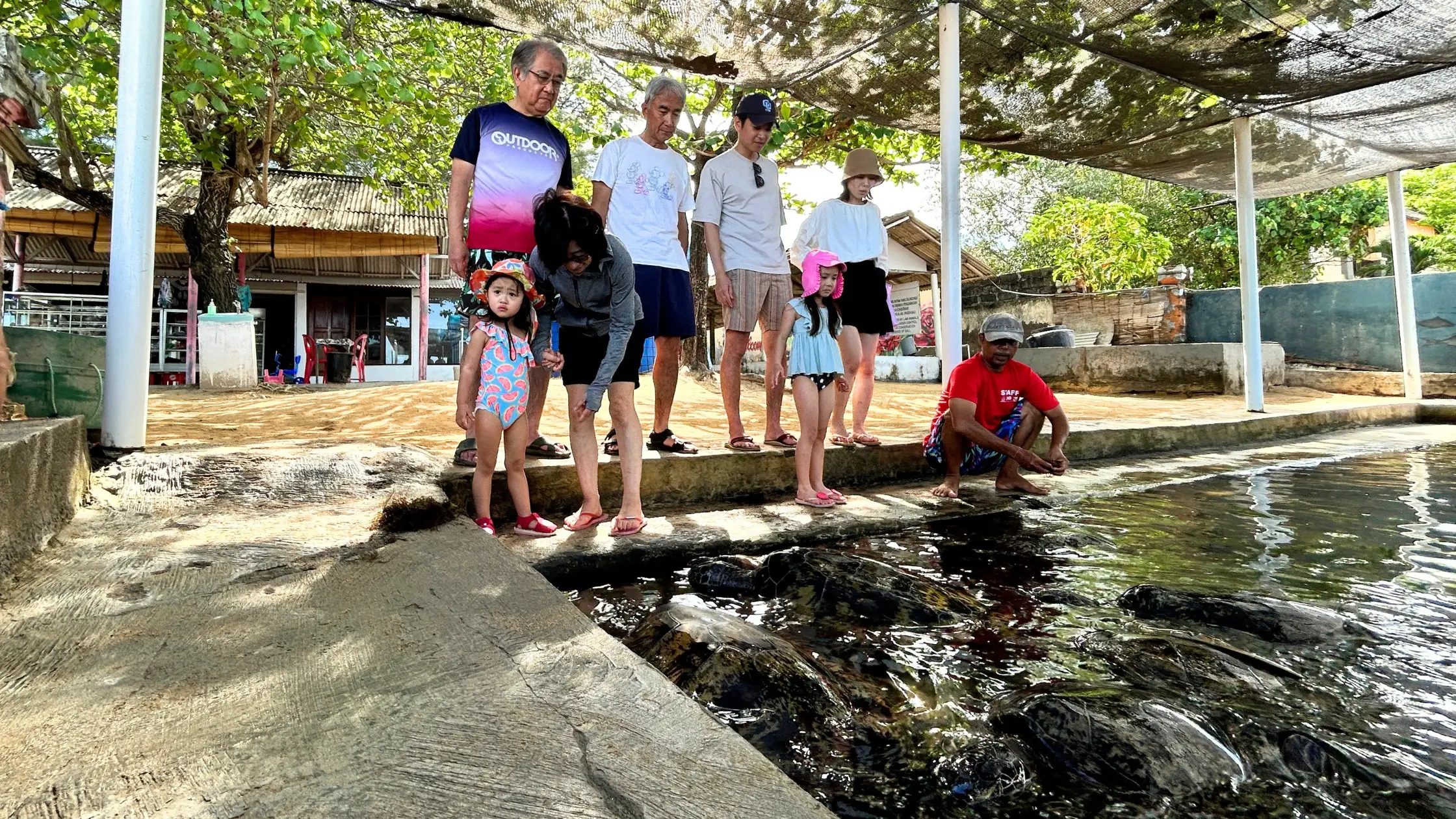
For animal lovers, visiting Bali’s ethical sanctuaries and wildlife rehabilitation centers is a meaningful way to contribute. Turtle hatcheries, bird rescue centers, and other wildlife programs educate visitors on protecting Bali’s unique species. These centers play a vital role in supporting protected areas and conserving critical habitats essential for the survival of Bali’s wildlife.
It’s important to choose organizations that focus on rehabilitation and release rather than entertainment. Spend some time observing rescued animals, listening to the caretakers’ stories, and even donating or adopting a turtle. You’ll leave with a greater appreciation for Bali’s biodiversity and confidence that you’re supporting truly sustainable tourism efforts.
Visiting ethical wildlife sanctuaries also helps fund much-needed rehabilitation and release programs, giving rescued animals a chance to return to the wild. Many centers will show you their work-in-progress projects, from hatchling release ponds to veterinary clinics, so you can see exactly where your contribution is going. It’s a great activity for families too, as children can develop empathy and a sense of responsibility towards animals from a young age. You leave with a deeper respect for Bali’s fragile ecosystems and the people working tirelessly to protect them.
Take Part in Mangrove Planting and Cleaning for Coastal Protection
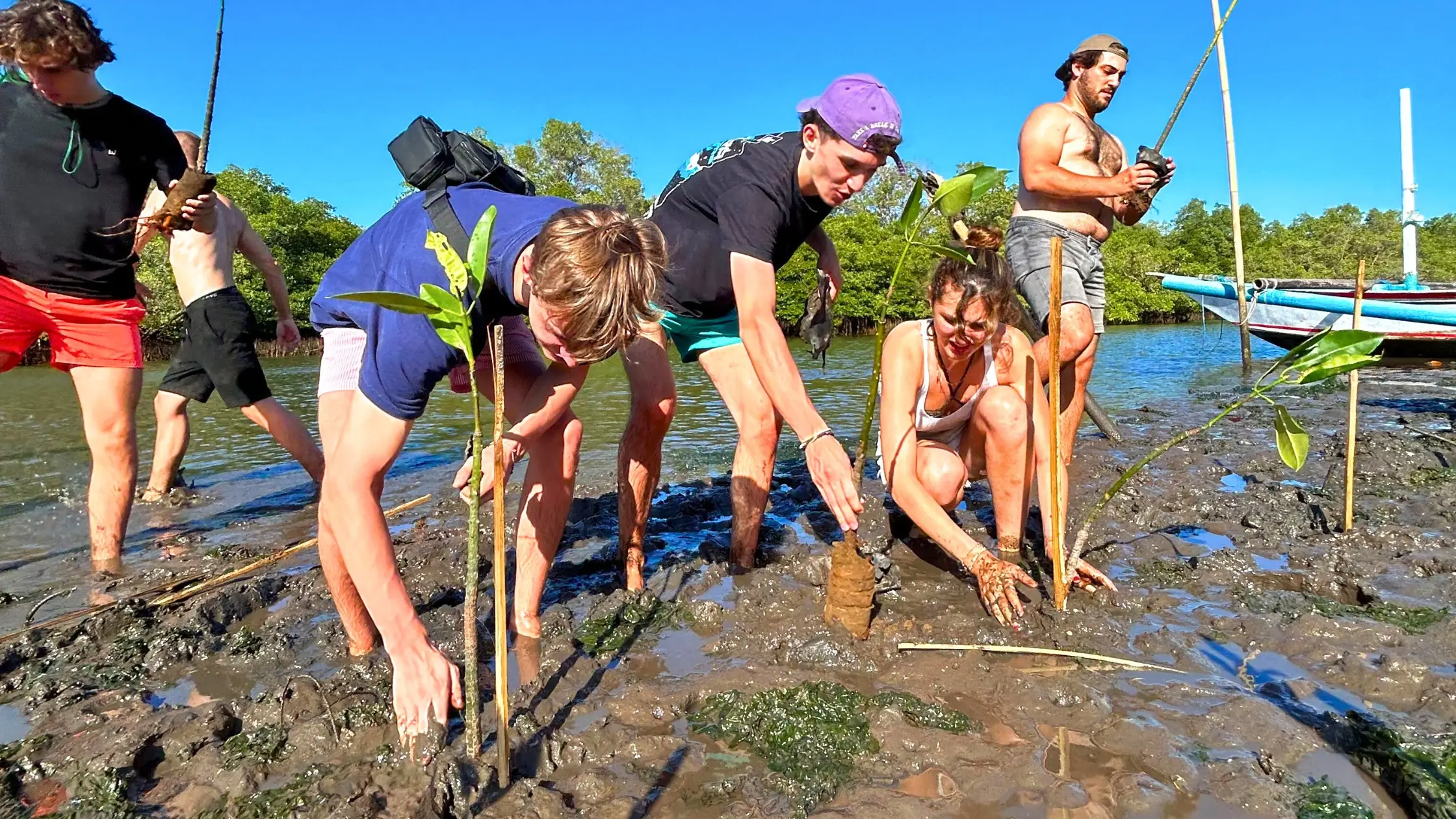
Mangrove forests are often overlooked but play a critical role in protecting Bali's coastlines, providing habitat, and storing carbon. Participating in a mangrove planting Bali activity is one of the most hands-on and rewarding ways to give back.
This activity is often offered as an add-on to guided canoe tours, such as the Mangrove Canoe Tour, giving you a chance to experience the forest both from the water and on land. Tour guides explain how mangroves protect the shoreline, improve water quality, and shelter countless marine creatures. Planting young trees or helping with a cleanup gives you a tangible way to contribute to Bali's ecological health.
Some tours even let you personalize your experience by planting a mangrove sapling with your name tag, a small but lasting legacy in Bali's coastal ecosystems. This is also a fantastic opportunity for group travelers or families, as everyone can participate together and take pride in their collective impact. In addition to planting, you may also help clear plastic debris from the forest floor and waterways, making the environment safer for both wildlife and visitors. This kind of immersive, hands-on conservation work makes your mangrove planting Bali experience truly memorable and impactful.
Discover Bali's Villages on Eco-Friendly Cycling Tours
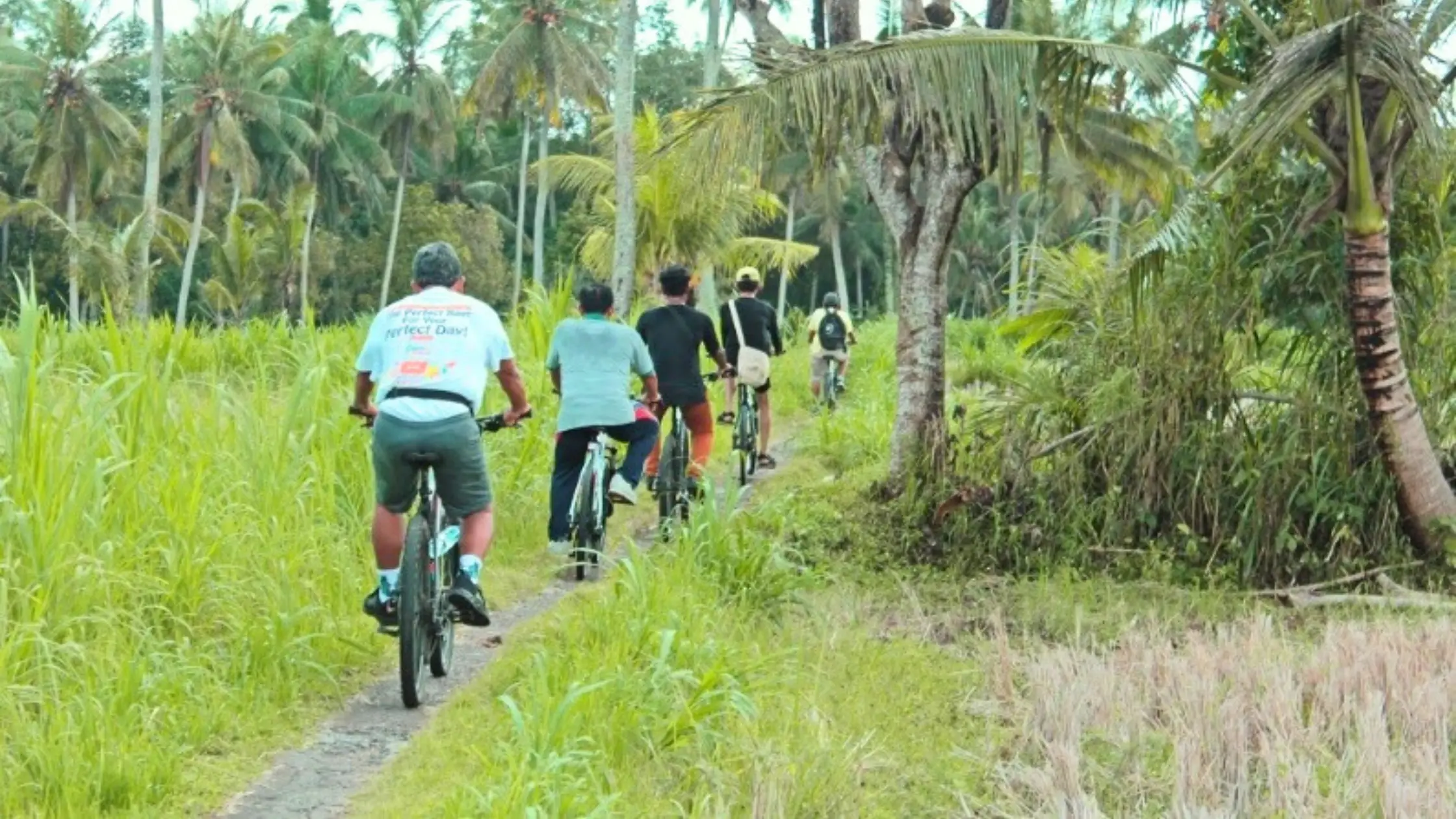
Another great way to reduce your environmental impact and still explore the island is through cycling. Bali's eco-friendly cycling tours take you through scenic rice terraces, traditional villages, and temple-dotted valleys, far from crowded tourist routes.
As you pedal through picturesque landscapes, you'll often be invited to stop at family compounds, try local snacks, or join in ceremonies if you're lucky. These personal connections are what make Bali nature tours truly special. Cycling is a slow and sustainable way to see how traditional life coexists with tourism, while enjoying Bali's fresh air and stunning vistas.
Cycling tours also give you plenty of opportunities to stop and snap photos, savoring the slower pace of eco-tourism Bali promotes. You'll likely pass by school children waving hello, farmers tending their fields, and artisans working on crafts authentic glimpses of Balinese life that you'd miss from a car window. Guides often share stories about the history and customs of the villages, helping you connect with the island's rich culture in a personal way. It's not just exercise, it's cultural immersion on two wheels.
Go Snorkeling with Eco-Friendly Operators and See Bali's Marine Life
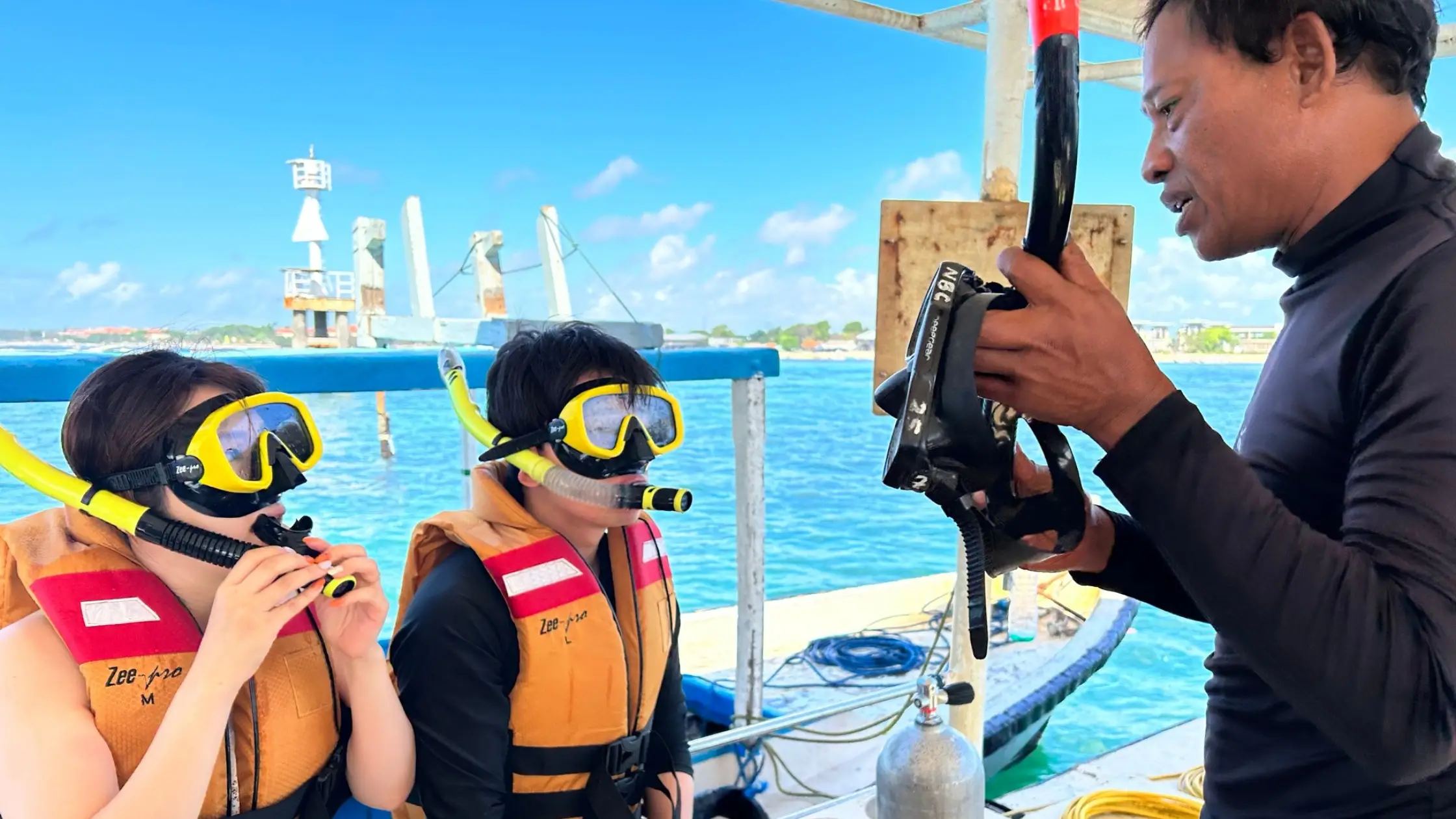
Bali's underwater world is full of vibrant coral reefs and marine life, but it's also fragile. Choose operators that follow eco-guidelines such as avoiding anchors on reefs, providing reef-safe sunscreen, and educating guests on sustainable snorkeling practices.
Tours like the Bali Tropical Snorkeling & Mangrove Cruise let you experience both the reefs and mangroves, maximizing your time in nature responsibly. You'll learn how healthy reefs support coastal communities, and even children can enjoy spotting fish and corals up close while practicing good ocean etiquette.
Some eco-friendly operators also include a short briefing about coral ecosystems and how snorkeling responsibly helps preserve them. You'll learn why you shouldn't touch corals, why reef-safe sunscreen matters, and how to move gently in the water. These tours often take you to lesser-known spots where the reefs are healthier and the crowds are smaller, a win for both you and the environment. By choosing such tours, you help fund reef restoration and monitoring programs, contributing to the long-term health of Bali's oceans.
Evening Mangrove Canoeing: A Peaceful, Sustainable Adventure
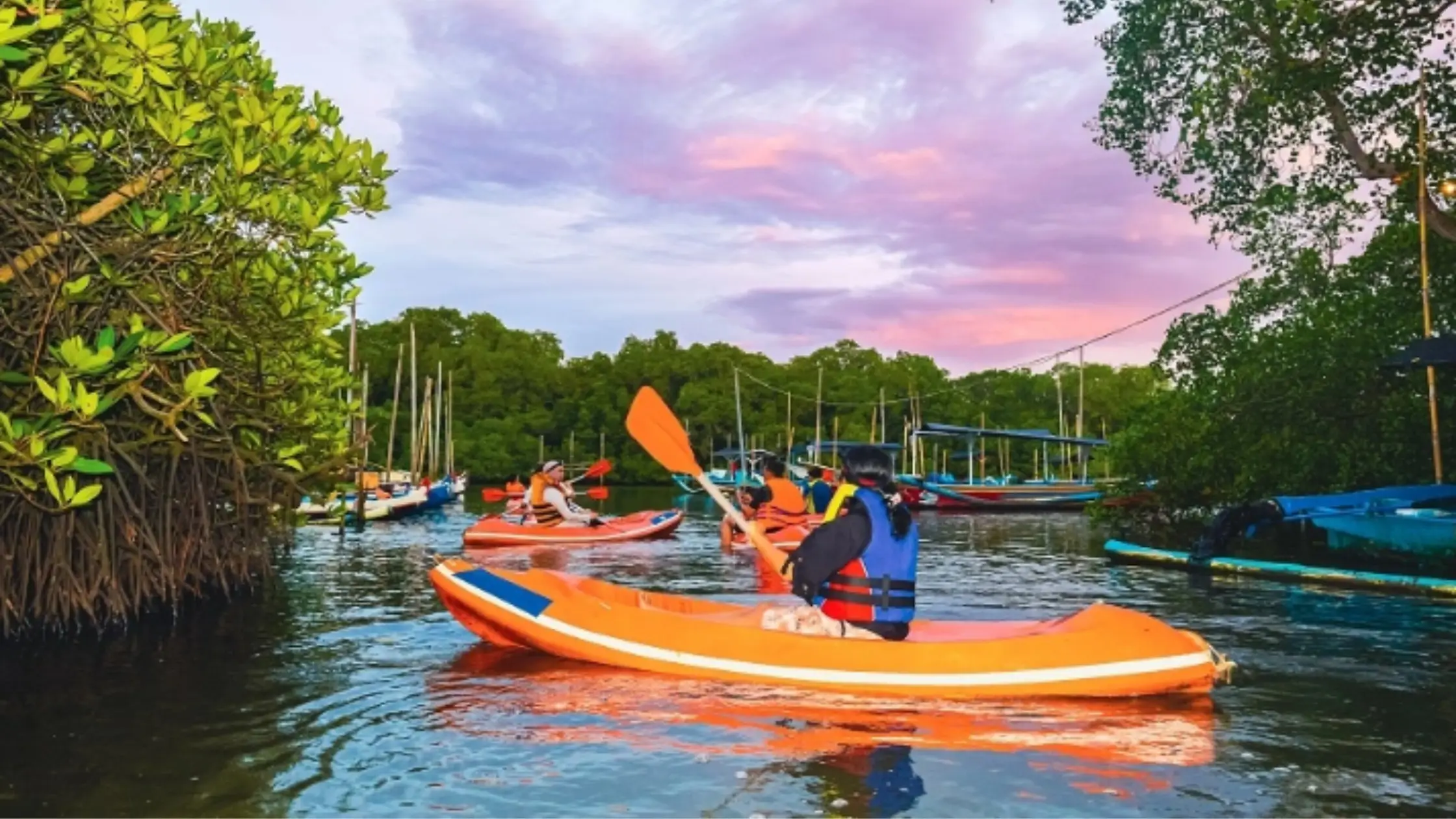
If you prefer calm and quiet activities, consider the Evening Mangrove Canoe Tour. As the sun sets, you'll paddle through tranquil mangrove channels, observing the unique flora and fauna that thrive in this coastal ecosystem.
Evening canoeing is ideal for travelers who want a cooler, more serene experience, and offers a chance to spot nocturnal creatures beginning their activity. The golden light and quiet atmosphere are perfect for photography and reflection, showing how eco-tourism Bali can be just as relaxing as it is meaningful.
An evening mangrove canoe tour often comes with added perks, like cooler temperatures and the chance to witness the shift from day to night in the forest. Fireflies, night birds, and the subtle glow of lanterns create a magical ambiance that daytime tours can't replicate. This experience is particularly suited to couples looking for a romantic yet meaningful activity, or solo travelers seeking calm and reflection. It's a gentle reminder of how beautiful and vital Bali's coastal ecosystems really are, especially when explored sustainably.
Explore the Mangroves by Traditional Jukung Boat
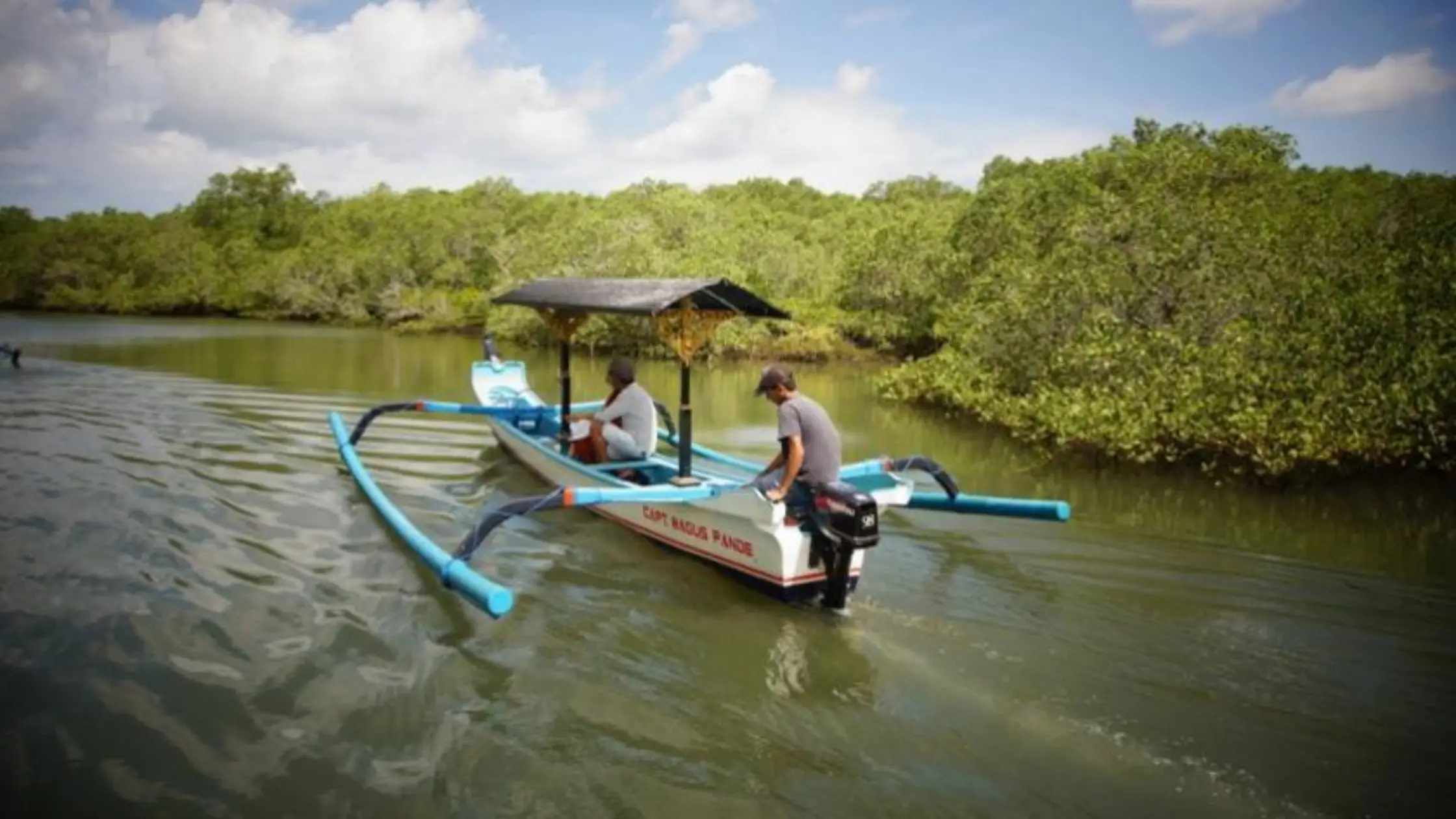
For something more cultural, try exploring the mangroves by jukung, a traditional Balinese outrigger boat. Tours like the Mangrove Tour by Jukung and Sunset Cruise by Jukung let you enjoy a relaxing ride through the mangroves, guided by locals who share stories of the area's cultural and ecological significance.
Gliding silently through the channels on a jukung allows you to fully appreciate the intricate roots and wildlife of the forest, while supporting Balinese boat builders and guides who keep this tradition alive. It's a unique addition to your sustainable travel Bali itinerary.
As you cruise on a traditional jukung, you may also learn about how these boats are crafted and the symbolism behind their colorful decorations. Guides sometimes share stories about how fishing families depend on the mangrove's bounty while protecting it for future generations. This kind of cultural insight makes the ride more than just scenic; it becomes a window into Bali's heritage. It's also a comfortable option for those who may not want to paddle but still want to enjoy the serene mangrove waterways in an authentic way.
The Positive Effects of Eco-Tourism in Bali
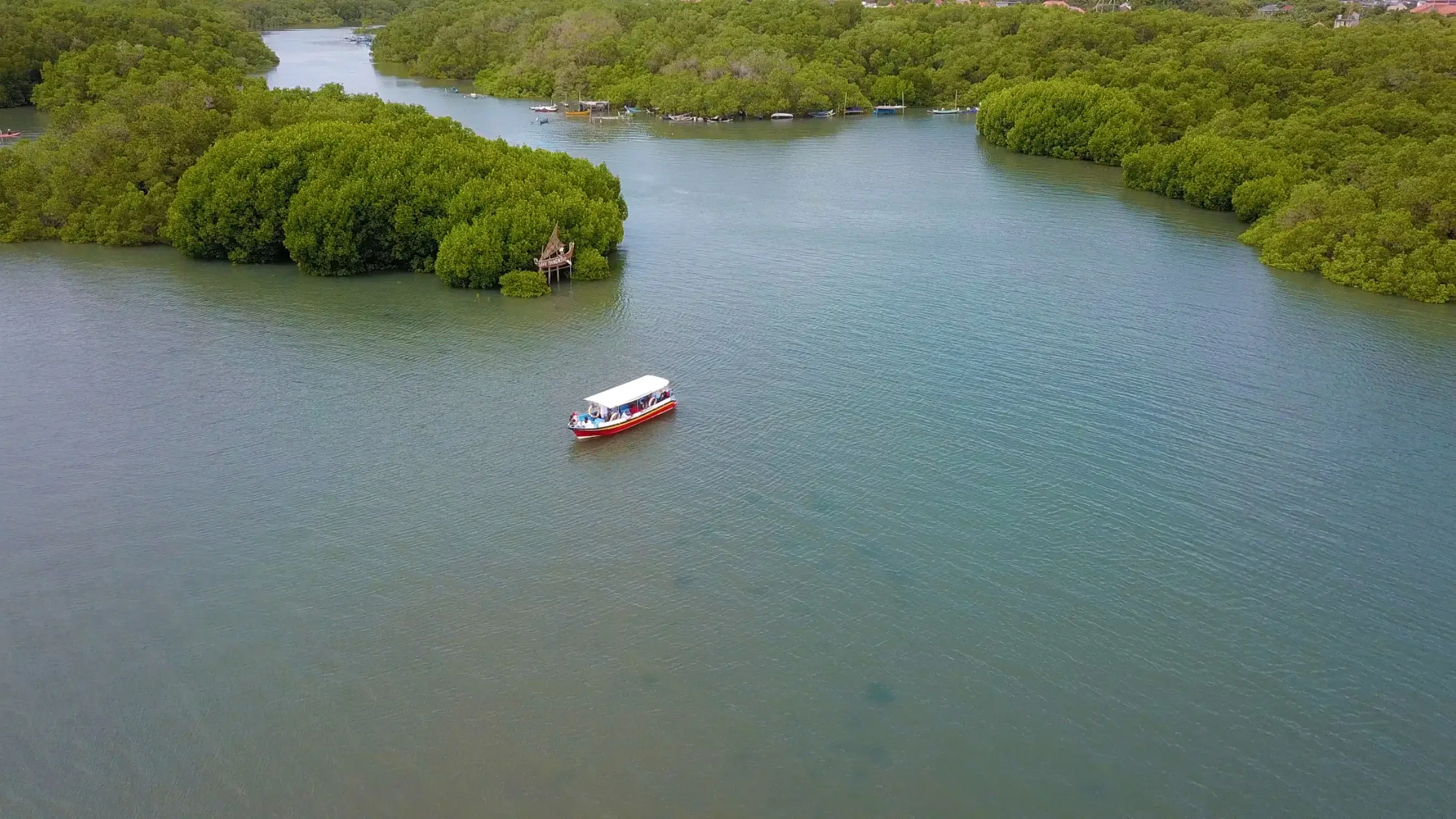
The benefits of eco-tourism in Bali extend far beyond the individual traveler; they ripple out to support the environment, local communities, and the island’s long-term sustainability. By embracing sustainable tourism practices, Bali is able to reduce waste disposal, conserve precious natural resources, and minimize the environmental impact of tourism. Initiatives such as turtle conservation, protected area management, and community-led cleanups are just a few examples of how eco-tourism is making a real difference.
Eco-tourism also plays a vital role in driving economic growth and creating decent work opportunities for the local community. By supporting small businesses, family-run farms, and ethical tour operators, visitors help generate income and improve the well-being of residents. This, in turn, encourages more communities to adopt sustainable practices and invest in the protection of their natural surroundings.
Perhaps most importantly, eco-tourism raises awareness about the importance of conservation, biodiversity, and responsible travel. Visitors are inspired to make positive changes both during their trip and back home by learning about the challenges facing Bali’s environment and the solutions being implemented. Every effort, from reducing single-use plastics to supporting turtle conservation, contributes to a healthier ecosystem and a brighter future for Bali. By choosing eco-tourism, you’re not just enjoying the island’s beauty, you’re helping to create a sustainable legacy for all who call Bali home.
Final Thoughts: Make Your Visit Matter

Image by lechatnoir from Getty Images Signature
Bali offers so much more than its famous beaches and temples it's also a destination where travelers can make a difference through thoughtful, eco-conscious activities. Whether you're planting mangroves, cycling through villages, or snorkeling responsibly, every choice you make supports sustainable travel in Bali and helps preserve its natural and cultural treasures.
By booking your tours with eco-conscious operators like Bali Mangrove Adventure, you're ensuring your trip is not only enjoyable but also meaningful. Check out their wide range of sustainable tours and start planning your next adventure today!

 EN
EN JP
JP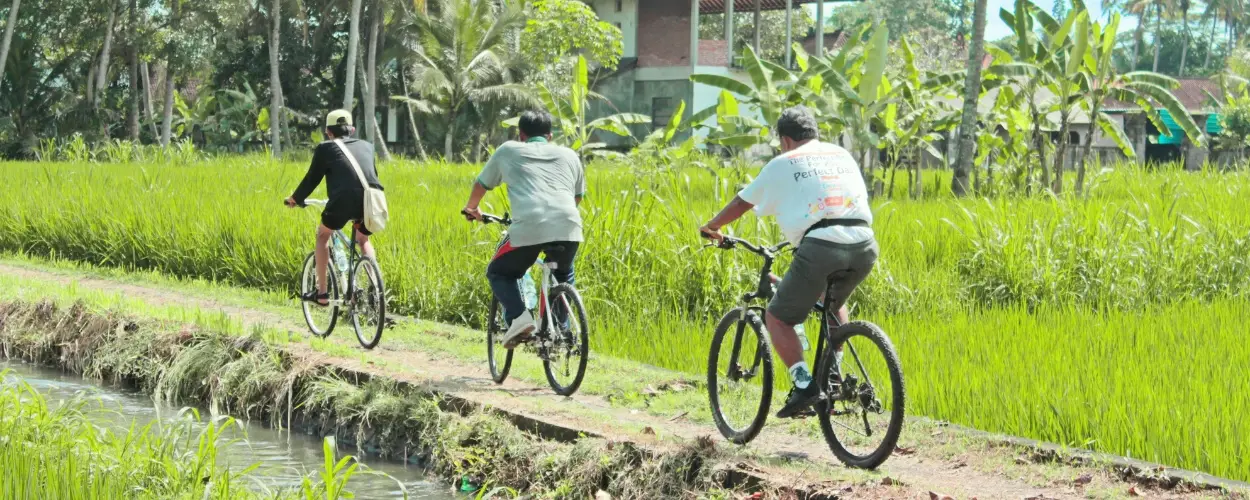
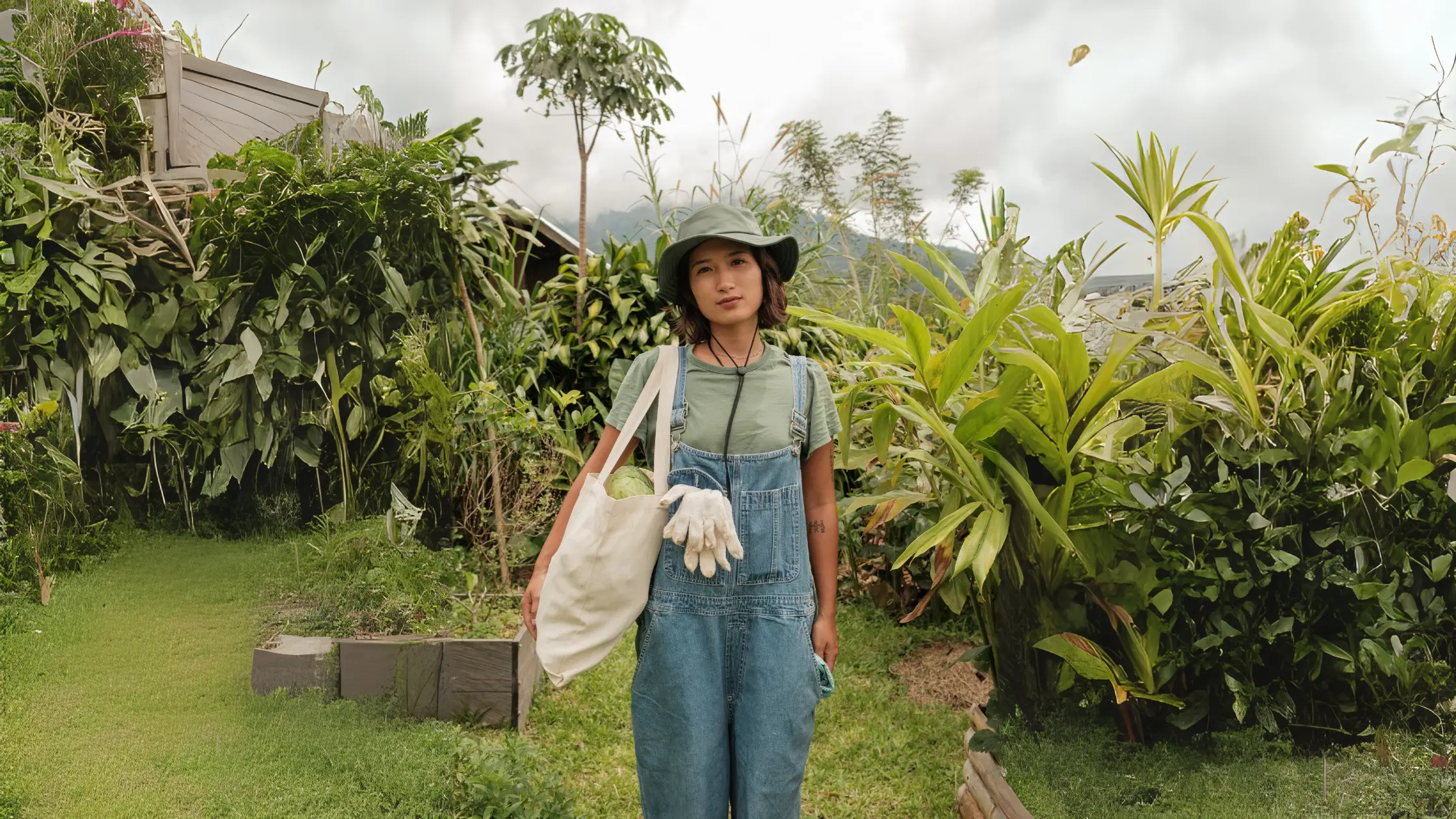


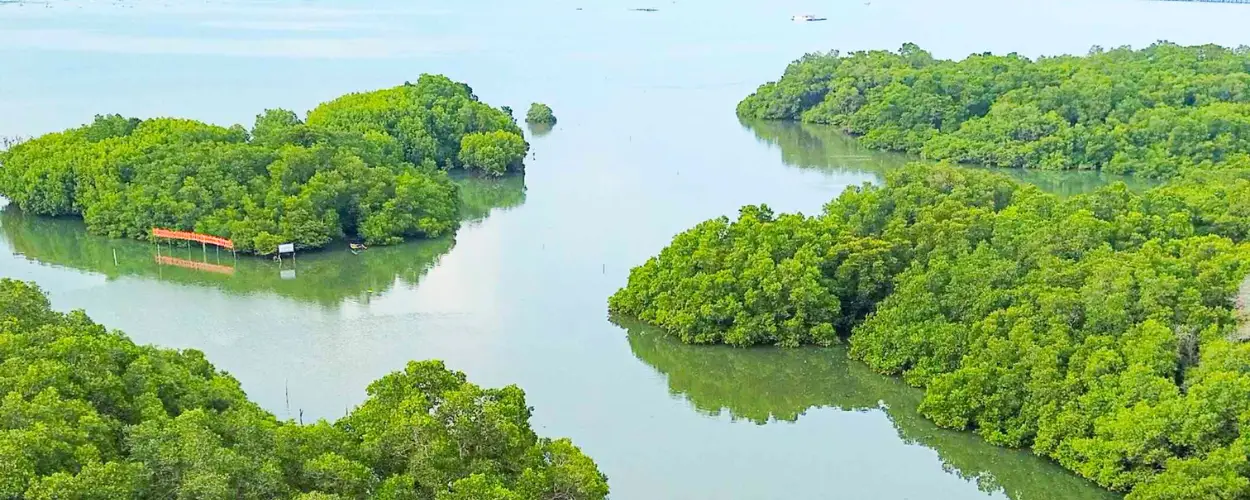
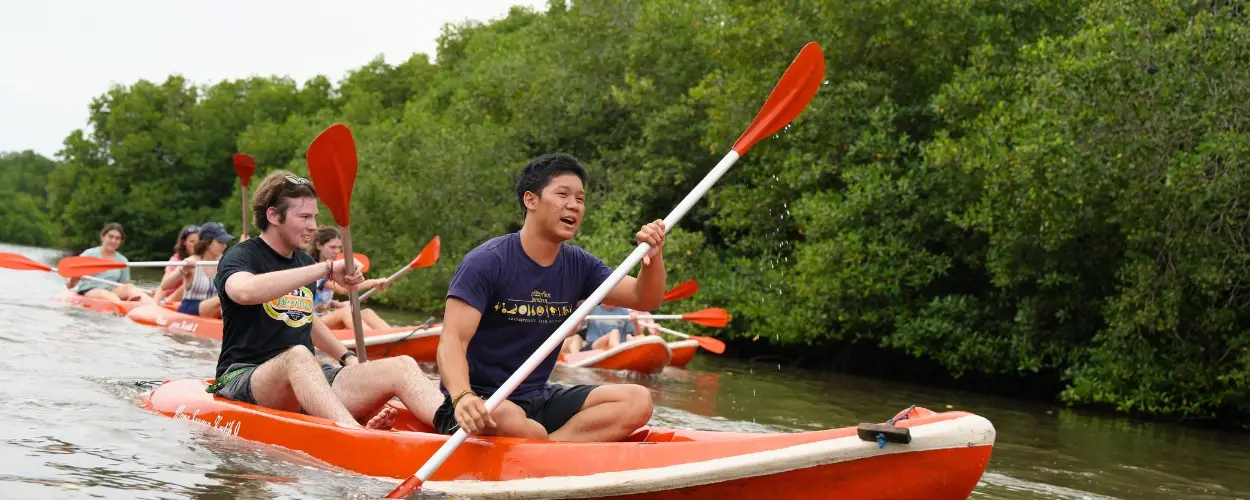

comments